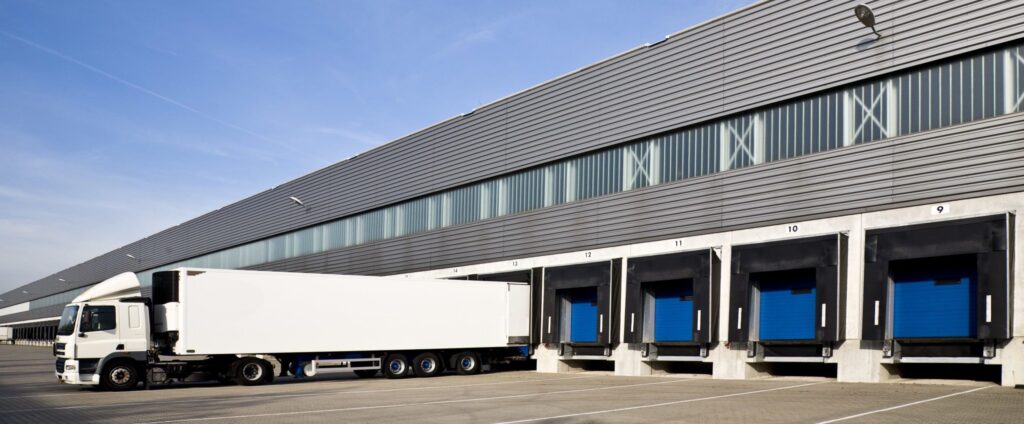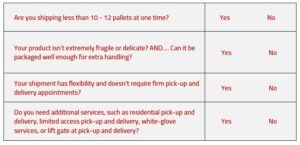
Less than truckload (LTL) shipping continues to have its highest market in over seven years, however, is utilizing LTL the best fit for your supply chain? In this article, we will help to answer that question along with reviewing the current LTL market state, taking a deeper dive into what exactly LTL is and when to use it, and uncovering the benefits of using a freight broker versus an LTL carrier.
Current LTL Market State
Spoiler Alert…. It’s a HOT LTL Market!
The “hot” LTL market has been driven by numerous factors including:
- Covid-19 and the Government Stimulus Checks – The pandemic-related increase in LTL shipments, paired with the latest stimulus checks and recent tax returns, has caused a surge in demand. In addition, we have seen more and more people getting the Covid-19 vaccine, which means that the public has been venturing outside of their homes to spend money.
- Online Shopping – As e-commerce continues to boom, the average weight per parcel has gone up, causing TL spillover into the LTL market.
- Pricing – As the demand for LTL shipments increases, the price of LTL has driven up to single digits. Gas surcharges have decreased, and as a result, the demand is there, but the capacity is not. Rates are still climbing and are expected to continue throughout 2021.
- Lack of Personnel – The top priority for carriers should be personnel, especially since there has been a shortage of new trucks and trailers available. The market is experiencing a shortage of dockworkers, which had led to more port congestion and equipment getting stuck at warehouses. Experts have said that, “shippers should remain focused on maintaining capacity heading into the summer.”1 Shippers are also likely to see an increase in much-deserved time-off requests from drivers and terminal workers.
- Suburb Living – Many Americans have moved to the suburbs over the course of the pandemic, causing a shift to the use of more cross-docks in the LTL market.
This summer is predicted to see even more of a demand for LTL shipping. The current U.S. LTL market is a $43.6 billion dollar market, with about 75% of the top ten LTL carriers holding the market share.2
What Exactly is LTL?
LTL is the transportation of freight that only takes up part of the semi truck’s trailer that is usually 150–15,000 pounds. When using an LTL carrier, you can consolidate your smaller shipments by destination. Often LTL carriers transfer loads between multiple trucks to reach the end destination. See below for a diagram of how LTL shipping operates.

When Should I Use LTL?
There are a few benefits to shipping LTL: a reduction in shipping costs being the most significant benefit, add-on service options, and tracking capabilities. Cost reduction is the most noteworthy benefit of LTL shipping. Why pay for unused space in a truck? In addition, by shipping less at a time, you can also reduce the cost to store products in a warehouse. Other reasons to consider when choosing to use LTL include if you have flexibility with your shipping and delivery times and if your product is sturdy enough to withstand increased handling.
LTL is “hot” in the current freight market due to its quick turnaround times, short cycle times, and the TL shortage issue. Any size business can benefit from LTL, but is it suitable for your shipment? Here’s a few things to consider:
- The weight of your shipment
- The amount of room that your product will take up on the truck
- The type of shipment
- The location or how far your shipment has to travel
- How quickly you need the product to arrive to its final destination
For a general rule of thumb, anything less than ten to twelve pallets should ship LTL.
Why would you choose LTL over truckload?
Answer the following questions and calculate your shipping score at the end:

If you answered mostly “no’s,” you should lean towards using TL, but if most of your answers were “yes,” then you should lean towards utilizing LTL for your shipping needs.
Using an LTL Freight Broker vs. an LTL Carrier
First, let’s explore the difference between a freight broker and a freight carrier. An LTL carrier owns and operates a fleet of trucks used to pick up LTL freight. A broker, however, does not own any trucks or shipping equipment, but is well-versed in the industry with a network of carrier contacts. Freight brokers act as a third party or “middle man”.
A freight broker has access to discounted rates by working with multiple LTL providers on your behalf to leverage available volume discounts. LTL shipping is extremely complex. Therefore, working with a freight broker on your LTL shipments simplifies the process of getting your product from point A to point B not only in terms of pricing, but also with tracking, billing, and having a single point of contact.
LTL Services Made Simple
Our proprietary software, MySpot TMS, makes shipping LTL easy:
- Easily quote and book LTL shipments in less than three minutes
- View competitive rates amongst a vast network of Regional & Nationwide LTL providers
- Generate shipping documents and send to contacts within or outside of your organization
- View carrier analytics, such as OTD, OTP, and acceptance %
- Garner real time visibility on your loads with track and trace functionality
Ready to see MySpot Transportation Management System in action with a demo by one of our dedicated LTL team members? Sign up today here.
Sources:
1 https://www.freightwaves.com/news/ltl-not-out-of-the-woods-but-opportunities-burgeoning
2 https://www.logisticsmgmt.com/article/state_of_ltl_2021_bull_market
